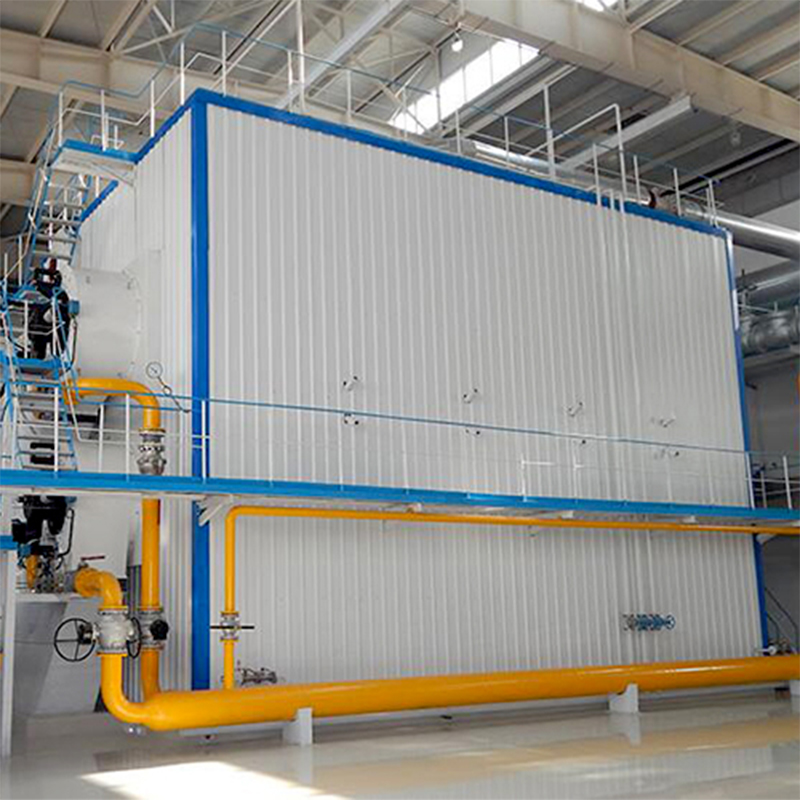high quality thermal oil system
High-Quality Thermal Oil Systems Ensuring Efficiency and Reliability in Industrial Applications
In today’s industrial landscape, the importance of effective heat transfer systems cannot be overstated. One of the most efficient methods to achieve optimal heat management is through high-quality thermal oil systems. These systems are designed to provide stable and efficient thermal energy for various applications, ranging from petrochemical processes to food production and beyond.
Understanding Thermal Oil Systems
Thermal oil systems operate on the principle of circulating synthetic or organic heat transfer fluids, commonly referred to as thermal oils. These oils have high boiling points, which allows them to endure elevated temperatures without vaporizing. Consequently, thermal oil systems can efficiently transport heat energy to various process units, maintaining the required temperature levels for optimal operation.
A typical thermal oil system consists of a heat transfer fluid, a heater, a pump, and a network of pipes. The heater warms the thermal oil, which is then circulated through the system by the pump. As the oil passes through different equipment, it transfers heat, maintaining the necessary temperature for various processes. After losing thermal energy, the oil returns to the heater for reheating, creating a closed-loop system that maximizes energy efficiency.
Key Benefits of High-Quality Thermal Oil Systems
1. Efficiency and Energy Savings High-quality thermal oil systems can operate at higher temperatures (often exceeding 300°C) while maintaining high efficiency. This capability reduces energy consumption and operational costs, making them economically attractive for industries with high-temperature heating requirements.
2. Versatility Thermal oil systems are versatile and can be designed to accommodate a wide range of industrial processes. They are used in applications such as oil refining, chemical processing, plastics manufacturing, and even in renewable energy systems like concentrated solar power plants.
3. Safety and Stability Modern thermal oils are formulated to have excellent thermal stability, reducing the risk of oxidation and degradation over time. This stability contributes to enhanced system safety, as the likelihood of pressure buildup or thermal runaway scenarios is significantly minimized.
4. Simplified Maintenance Unlike traditional steam systems, thermal oil systems are often easier to maintain. The lack of pressure in the system reduces the need for complex safety protocols, and regular checks can be sufficiently managed by ordinary operational staff.
high quality thermal oil system

5. Environmental Considerations High-quality thermal oils are designed to comply with environmental regulations, producing fewer emissions compared to other heating methods. Furthermore, the energy efficiency of thermal oil systems contributes to reduced carbon footprints for industrial operations.
Selecting the Right Thermal Oil System
When considering the integration of a thermal oil system, several factors must be taken into account to ensure optimal performance
- Application Requirements Identify the specific heating requirements of the process, including temperature range and heat capacity. This information will dictate the type of thermal oil and system configuration needed.
- Quality of Thermal Oil Invest in high-quality thermal oils that offer superior thermal stability, low viscosity, and minimal risk of degradation over time. The right oil can significantly enhance the efficiency and lifespan of the system.
- System Design Work with experienced engineers to design a system tailored to your facility's unique specifications. The design should consider factors like heat loss, flow rates, and operational efficiency.
- Regular Monitoring and Maintenance Implement a routine inspection and maintenance schedule to ensure the system operates at peak efficiency. Monitoring key parameters such as oil temperature, pressure, and fluid condition can help prevent potential issues.
Conclusion
In conclusion, high-quality thermal oil systems play a crucial role in the efficient management of heat in various industrial applications. With benefits such as energy savings, safety, versatility, and simplified maintenance, these systems are increasingly becoming the preferred choice for many industries. As businesses look to enhance operational efficiency and reduce environmental impact, investing in advanced thermal oil systems is undoubtedly a forward-thinking approach. With proper selection, design, and maintenance, organizations can ensure reliable and effective heat management, thus optimizing their processes and contributing to sustainable development.
-
Advanced Electric Steam Boiler Manufacturers | GPT-4 Turbo AINewsAug.01,2025
-
Custom Steam Boilers Manufacturer | AI-Enhanced EfficiencyNewsJul.31,2025
-
Top Electric Steam Boiler Makers | AI-OptimizedNewsJul.31,2025
-
Top Electric Steam Boiler Manufacturers - High Efficiency SolutionsNewsJul.30,2025
-
Top Electric Steam Boiler Manufacturers – Efficient Industrial SolutionsNewsJul.29,2025
-
Top Electric Steam Boiler Manufacturers | Reliable Industrial SolutionsNewsJul.29,2025

